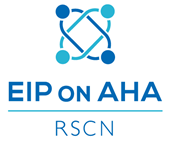The main findings of the Campania workshop on Personalised Medicine
ProMIS – the Italian MoH Program for Internationalization of Regional Health Systems, in collaboration with Campania Reference Site, organized a workshop in Naples on 25th September 2018 entitled "The contribution of personalised medicine to the health outcomes and the sustainability of social and health systems".
The workshop has been aimed at having a broad and specialized focus on personalised medicine, to provide an overview of international and national institutional strategies and to share innovative approaches with a positive socio-economic impact on public health. The paradigm shift of health and social systems is necessary to respond in an appropriate way to social challenges such as population ageing, migratory flows, which expose migratory routes to diseases that are unusual for Western countries, as well as to the issue of health equity in Europe, undermined by availability of expensive diagnostic-therapeutic approaches. The integration of care and the sharing of data, underlying this paradigmatic change in health and social systems, are grounded in the health needs expressed at the local level.
The availability of tools able to produce and capture data in a non-traditional way, such as medical devices, wearables, social media, genomic sciences, self-monitoring of patients, can help to customize the diagnostic-therapeutic pathways in response to specific needs. The use of "big data" raises issues that depend in part on their multitude and heterogeneity, and partly on the multiplicity of actors involved in both their collection and use (citizens, health professionals, IT experts, etc.).
The aggregation of coherent subsets of data is essential so that they can be meaningful for the management of health issues. This data clustering requires artificial intelligence systems capable of reading trends, interpreting deviations from normality, etc. For this reason, from the management point of view, issues of semantic interoperability emerge for data and flows, standardization, data processing in the original language, patient identity and consent management by patients, visual integration of external data sources, distributed and dynamic data-sharing platforms, workgroup support technologies, etc.
